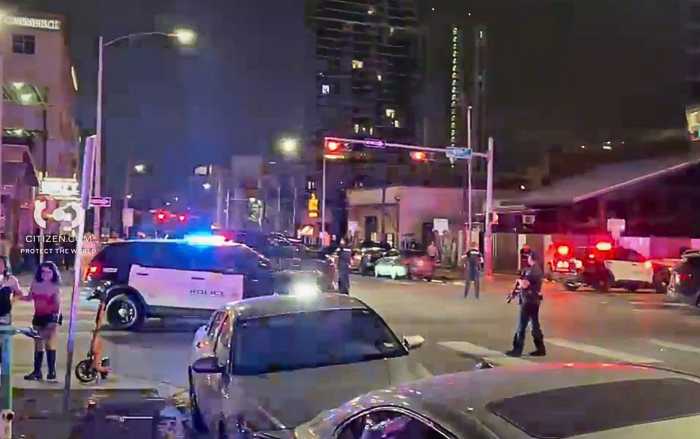The death toll in a monster cyclone which ripped through Myanmar (formerly Burma) recently could go as high as 50,000, according to international relief agencies, and the American Red Cross (ARC) is asking for donations to help.
Cyclone Negris plowed through the country’s agricultural heartland around the Irawaddy River delta on Saturday, May 3, with winds of 120 miles per hour. Reports say that as many as 10,000 died in the town of Bogalay alone.
“We’re looking at 50,000 dead and millions homeless,” said Andrew Kirkwood, director of operations in Myanmar for the British charity “Save the Children.”
In response, the Greater New York ARC is accepting financial gifts to help cyclone victims. Checks should be made payable to the “American Red Cross International Response Fund - Myanmar” and can be mailed to:
American Red Cross in Greater New York
520 West 49th Street, New York, NY 10019
Official reports from the ruling military junta place the toll at 22,500 dead and 41,000 missing, but the devastation is being compared to the 2004 tsunami, which ravaged 11 countries over thousands of miles.
The junta refused foreign assistance after the tsunami, but the sheer scale of the unfolding disaster has forced them to seek assistance. In a rare television appearance, Burmese Foreign Minister Nyah Win said, “We will welcome help . . . from other countries because our people are in difficulty.”
Cyclones are the southern-hemisphere version of hurricanes. Physical forces of the earth’s rotation cause these storms to rotate clockwise, rather than counter-clockwise like hurricanes.
As the storm plowed from west to east along the low-lying coast, its full force slammed a 12-foot wall of water far inland. The result is that seven townships have been declared “priority” zones, with 90 to 95 percent of everything destroyed.
“Anything less than 60 per cent destroyed is not being counted as a priority,” Kirkwood said, “Which gives some indication of the scale of the problem.”
The disaster has prompted a delay in elections intended to legitimize the junta, which refused to hand over power in 1990, after a sweeping loss at the polls.
Religious and political oppression reached a nadir last September, when government forces fired into Buddhist and pro-democracy protesters in the capitol Yangon (formerly Rangoon.) The city also suffered severe damage in the storm.
Reports from the countryside say that dead bodies littered rice paddies and roads and communications were largely destroyed, while military forces were doing little in the way of recovery efforts.
The head of United Nations Children’s Fund in the U.S. Caryl Stern said, “Our biggest fear is that the aftermath could be more lethal than the storm itself.






























